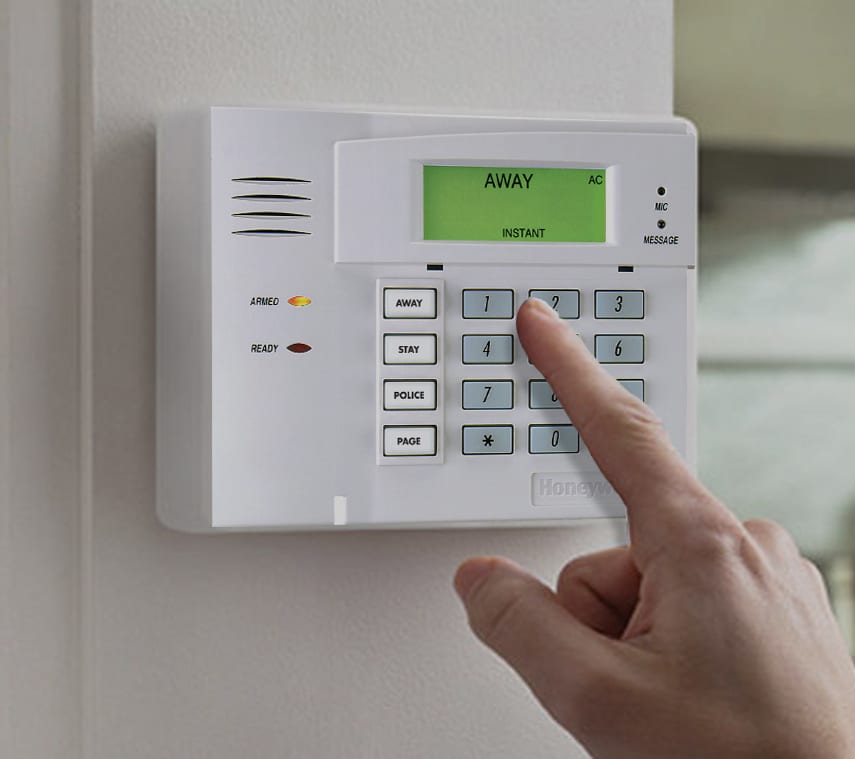Hard-Wired vs. Wireless Home Security: Which is Right for You

But first things first: You’ll need to decide if a wireless or hard-wired system is the right choice for your home. The distinction may seem obvious at first, but there’s actually a lot to consider.
Hard-Wired Security System
In a hard-wired security system, the contacts on the doors, windows and motion sensors communicate with the control panel via powered lines that are wired throughout the home. It relies on electricity to operate (with a battery backup).
Pros
Because it works off a power source, a wired home security system is considered very reliable. In addition, the signal from the system to the control panel is more consistent due to the hard-wired system.
Cons
All of the equipment (contacts and motion sensors) in a wired system are connected via wires that run through the walls of the home, so in most cases this type of system requires that the home have a basement or unfinished area for the wires to connect together. Because of all the wiring, these systems are more expensive than a wireless system to install. Hard-wired systems are permanent and cannot be easily uninstalled or moved.
Reasons to choose a hard-wired system
- If you want a more hands-off system: If home automation isn’t as important to you, and you will require your security company to install the system, a hard-wired system might be best for you.
- If it’s already in place: If you move into a home with a hard-wired system already installed, count yourself lucky and stick with what you have. Contact EMC Security to see if you’ll need a takeover (simply reprogramming the existing system to allow EMC to take over) or a conversion (replacing or modifying the existing equipment, such as the control panel, keypad and sensors).
Wireless Security System
Wireless security system components communicate with the control panel via Wi-Fi or cell towers.
Many confuse the term “wireless” with “cellular communication”. A wireless system refers to the way the security components communicate with the brains of the system. A cellular communicator allows the system to communicate with the monitoring service provider via cellular towers.
With all of the advancements in technologies, wireless systems are becoming just as reliable as hard-wired systems — if not more. Due to the easier and quicker installation, a wireless system is commonly the more practical choice for most homeowners.
Pros
It is quicker and less expensive to install a wireless system since there isn’t as much equipment (i.e., wires) to install. And because there are no wires, this type of system is portable and easily uninstalled. It’s also more technologically advanced and offers features such as home automation (keyless door lock, surveillance camera monitoring, thermostat controls, etc.).
Cons
While it’s uncommon, wireless systems can be vulnerable to interference. They are also battery operated, so the batteries will need to be replaced from time to time.
Reasons to choose a wireless system
- If flexibility matters: A wireless system is easier to install and uninstall, so you can take your wireless system with you in the event you relocate to a new home. Because of their portability, they can also be easily adapted to remodels.
- If you’re a techie: If home automation and controlling your system through an app are on the top of your list, then a wireless system is your best bet.
If you’re ready to purchase home security but aren’t sure which system is best for you, download our Free Guide to Buying Home Security to learn more about the available options.
